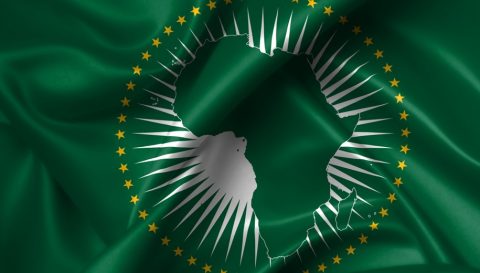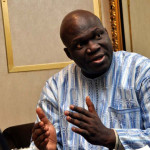Confab Seeks End To Violence Against Children In Africa
African News, Featured, Latest Headlines, News, News Around Africa, North Africa Friday, July 23rd, 2021
(AFRICAN EXAMINER) – Participants at the high-level virtual conference organized by African Child Policy Forum (ACPF), an independent, not-for-profit Pan-African policy research and advocacy centre, have renewed the call to stop violence against children in Africa.
ACPF was established in 2003 out of concern about the situation of the African child and the need for Africans to recognise their responsibility to collectively ensure the realisation of all rights to all children.
The event which was held on Thursday is part of the Together to #ENDViolence solutions summit series led by the Global Partnership to End Violence Against Children.
Moreover, reports from current studies reveal that African children continue to suffer widespread physical, psychological and sexual violence. A data released by the African Partnership to end Violence Against Children (APEVAC), an initiative of the ACPF, indicates an “unacceptable scale” of violence against children (VAC).
APEVAC is an African umbrella coalition and a collective platform established in September 2016, to bring together like-minded national, regional, and international organisations for collective action to ending violence against children in the continent.
ACPF’s three new studies provide powerful evidence of the rise in VAC in Africa. They find that children caught up in conflict or humanitarian disasters, those with disabilities, engaged in child labour, living or working on the streets, and those in residential care, are most vulnerable.
In addition, digital technology is driving new forms of VAC, with children now facing increased risks of online sexual abuse. The Covid-19 pandemic has caused a spike in reports of VAC.
The studies also show that more than half of all children experience physical abuse, while in some parts of Africa, four in ten girls suffer sexual violence before the age of 15. At least 60 percent of boys and 51 percent of girls in Africa experience physical abuse. In some regions, more than eight out of ten children aged 1-14 experience violent discipline every month.
For instance in Nigeria, 66 percent of girls and 58 percent of boys under 18 witness violence in the home. More than half of all children aged 13–15 in West and Central Africa are bullied in school.
Worse still, Africa has the highest rates of child neglect in the world as 41.8 percent of girls and 39.1 percent of boys are neglected by their caregivers. Sexual violence against children with disabilities is high in many countries, ranging from two incidents per child in Senegal to four per child in Cameroon.
ACPF’s Executive Director, Dr Joan Nyanyuki said vigorous action must be taken to tackle the unacceptable scourge of VAC in Africa.
“Thirty years after the African Children’s Charter was adopted, African governments are still failing to protect children from violence”, she said.
She however, acknowledged that there has been some progress, notably on Female Genital Mutilation (FGM), child marriage and corporal punishment, adding that advances have been uneven, fragmented, and too slow.
“Most governments lack political will, and the amount of money allocated to tackling VAC is derisory”, she further explained.
On the plus side, according to her, the study finds ‘home-grown’ initiatives that they can reduce levels of violence, whilst strengthening relationships between parents and their children.
“We need more of Africa’s own home-grown solutions which offer children greater protection and help to build stronger communities. We must urgently address the deep-rooted patriarchal attitudes and practices which discriminate against children, especially girls” she stressed.
Similarly, the Chair of ACPF International Board of Trustees, Mrs Graça Machel noted that of all the unspeakable damages suffered by of our children, violence is surely the worst, simply because it is entirely avoidable, yet leaves lasting scars.
“We cannot accept such suffering at any level of African society, as its devastating impacts on our children’s dignity, physical and mental wellbeing continue to rob them of their future.
“The social and economic impact on society is equally harmful. Violence against children is directly related to poor educational outcomes, school drop-out, ill health and poor future employment prospects. These in turn reduce productivity and add massively to the cost of health and social care”, she added.
Related Posts
Short URL: https://www.africanexaminer.com/?p=65703




















